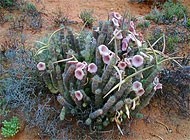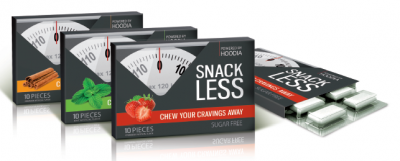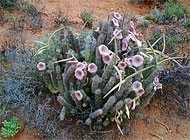Why Unilever canned €20m hoodia project: Newly published study disappoints

Research published in the American Journal of Clinical Nutrition found hoodia was no better than placebo for affecting energy intakes or body weight in a 15 day trial among healthy, overweight women.
A Unilever spokesperson told NutraIngredients it had known the outcome of the research at the time it pulled out of the hoodia deal, which it justified by citing doubts over both safety and efficacy.
"Unilever terminated its hoodia gordonii project in 2008 after clinical research found that using hoodia gordonii extract in a Unilever-branded product would not meet our high standards for safety and efficacy,” the spokesperson said.
“This research has now been published in the American Journal of Clinical Nutrition."
Hoodia gordonii is a small cactus that grows in the Kalahari desert and has a history of use among local people as a promoter of satiety.
Phytopharm gained a global license to market it in 1997 but late last year returned patents for extracts from the plant to the South African government.
Method
The randomised, double-blind, placebo-controlled, parallel-group trial was conducted with about 25 healthy, 18-50 year old women in each of the hoodia and placebo groups.
During the 15-day trial period they were given either two servings per day of 1110mg of hoodia extract in a yoghurt drink an hour before breakfast and dinner or placebo. They were allowed to eat normally otherwise.
As well as there being no weight management benefit in the target group, some adverse reactions were noted.
Hoodia, the researchers observed, “was less well tolerated than was the placebo because of episodes of nausea, emesis, and disturbances of skin sensation. Blood pressure, pulse, heart rate, bilirubin, and alkaline phosphatase showed significant increases in the [hoodia] group.”
They concluded: “There are many commercially available dietary supplements that claim to contain H. gordonii. Given the results here, we cannot exclude the possibility that consumers who take certain of these supplements could experience similar side effects.”
“More knowledge of the mechanisms, sites of action, and active components of [hoodia] is required before a final conclusion can be drawn regarding the potential use of [hoodia] as a viable-candidate functional food ingredient targeted at aiding weight management.”
Weight Management 2011 Virtual Conference and Expo
Hoodia and other botanicals will be discussed by Mark Blumenthal, the executive director and founder of the American Botanical Council (ABC), at the upcoming Weight Management 2011 Virtual Conference and Expo on November 9.
For more information about the event click here.
Source:
American Journal of Clinical Nutrition
doi: 10.3945/ajcn.111. 020321.
‘Effects of 15-d repeated consumption of Hoodia gordonii purified extract on safety, ad libitum energy intake, and body weight in healthy, overweight women: a randomized controlled trial’
Authors: Wendy AM Blom, Salomon L Abrahamse, Roberta Bradford, Guus SMJE Duchateau, Winfried Theis, Antonia Orsi, Caroline L Ward, David J Mela
















